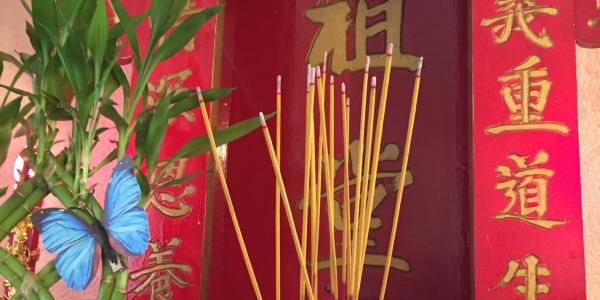
Across Asia, many countries celebrate the Lunar New Year—and the Asian Studies Center (ASC) is helping to lead celebrations in Pittsburgh, too.
Aside from supporting student-associated Asian clubs, ASC is hosting a Lunar New Year Celebration on January 25 from 1 to 3 pm in the Global Hub. Festivities will include traditional mandarin oranges for everyone to enjoy as a sign of good fortune and dumplings, which resemble pouches of money and represent prosperity. There will also be music, a Year of the Rabbit craft, and red envelopes containing fortunes for the year ahead.
For those who have never celebrated Lunar New Year before, it’s the perfect time to join in. The Lunar New Year is a time of celebration and a way to spread goodwill and light to all in the community—and don’t forget to wear red, which represents good energy and repels the negative.
Linda Lieu, Assistant Director for Partnerships and Programming, said, “Other than celebratory traditions passed down from generation to generation, from a personal standpoint, with the recent upswing in Asian Hate Crimes, it’s more important than ever for Pitt to stand with Pitt’s AAPI community. 2023’s Lunar New Year is being touted as a year of hope, and with the notion that we push the bad out with the old, we celebrate the good with a new year.”
Many countries in Asia celebrate the Lunar New Year, including China, Vietnam, the Philippines, Korea, and Malaysia. Each country celebrates with different traditions, but all partake in specific symbolic dishes and celebrate luck with friends and family for the new year.
This year is also the Year of the Rabbit for several countries that celebrate. The Year of the Rabbit signifies longevity and peace, and those who are born in the Year of the Rabbit are said to quick-minded and witty. It’s important to note that Vietnam won’t celebrate the Year of the Rabbit—they’ll celebrate the Year of the Cat instead, as across Asia, there are variations to the zodiac.
Traditions also vary across countries and can be incredibly personal. Lieu stated, “I always prepare for the Lunar New Year by cleaning my house, sweeping out the stale air from the previous year and starting afresh, and wearing red. I’ll prepare an offering for my ancestors to revere them—this includes burning incense and joss paper, and offering sweets and flowers at their alter.”
Wishing a peaceful, prosperous, and happy Lunar New Year to all who celebrate!

